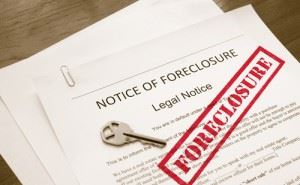The world produces over 50 million tons of electronic waste {e-waste} annually. These numbers are not surprising, with most tasks now being handled by gadgets and more advanced gadgets being produced almost daily. E-waste encompasses all the scrap produced by discarded electronic devices that are no longer useful. These include consumer electronics like cellphones, office electronics like printers, lighting devices, power tools, home appliances, and sports equipment like gaming consoles.
Like the rest of the world, residents of Sonoma, California, are, of course, buying new gadgets almost daily and replacing their outdated or damaged appliances. Though there is nothing wrong with this, most see no need to properly dispose of the electronic appliances they no longer use through a full service junk removal company. People assume that you can simply get rid of a damaged electronic appliance by throwing it away in the trash.
Unlike the other forms of waste that end up in landfills around Sonoma, e-waste contains hazardous elements like zinc, lead, chromium, barium, and flame retardants, among others. These have significant detrimental effects on different aspects. Here is a look at the impact of e-waste on a few things.

Air
Air pollution occurs when you dismantle, shred or melt the materials used for electronics. This releases toxins like dioxins and dust particles into the air. Air pollution from the byproducts of e-waste has been linked to cancers and chronic respiratory diseases. Unfortunately, these byproducts can travel for miles because they are fine particles and will thus have detrimental effects on large geographical locations. They have also been linked to hydrocarbons that add to the greenhouse effect, which worsens global warming.
The effects of air pollution attributed to e-waste are worse in some animal species than in others because of specific mutations. Over time, continued air pollution changes the biodiversity of different regions while causing irreversible negative changes to water bodies, plants, and soil. In some places with high air levels of lead, large sea animals, humans, and wildlife have suffered extensive neurological damage.
Soil
As e-waste breaks down, its components seep into the soil from whence they contaminate groundwater and crops. When crops absorb the toxins produced by e-waste, these often end up in the digestive systems of the wildlife and humans that feed on them. Other than the diseases caused in wildlife and humans, the toxins also reduce the productivity of farmland.
The extent of soil contamination by e-waste depends on the weight and size of the particles released by its dismantling, shredding, or burning. It also depends on the soil type, soil composition, PH levels, and environmental temperatures. Unfortunately, the pollutants from e-waste remain in the soil for a long time.
Water
Though water is often contaminated from the contaminants that leak to groundwater through the soil, there are times when people directly dispose of their waste into water bodies. Though this seems like an inexpensive alternative to full service junk removal for your home or business, the appliances slowly disintegrate with their chemicals dissolving in the water. The water, in turn, flows into lakes, rivers, streams, and ponds.
The toxification and acidification created in water bodies by disintegrated e-waste like lithium, barium, lead, and mercury affect fresh and marine water organisms, harm ecosystems, and disturb biodiversity. Moreover, they cause skin and digestive issues to the people and animals who drink, cook with, or swim in the contaminated water. Unfortunately, when acidification is present, the damage to ecosystems is often irreversible.
Plants
Plants need adequate air and water for them to thrive. Most of them are exposed to the air and water sources contaminated by e-waste. Depending on the levels of toxins from the air and water, some plants die while others have low yields.
The ones that end up as food for man or animals introduce the toxin into their digestive systems and significantly affect their health. At times, these plants become poisonous and cause the deaths of animals and humans. The low yields and death of plants exposed to toxins place the world at significant risk of starvation.
Humans
People that come into contact with the toxic chemicals released by e-waste can develop debilitating physical and neurological conditions over time. The toxins from e-waste will enter the human body through ingestion, inhalation, or skin absorption.
Developmental issues, kidney damage, asthmatic bronchitis, DNA mutations, muscle weakness, hormone imbalance, and lowered immunity are a few health issues associated with improper disposal of e-waste. Some of these conditions are challenging and expensive to treat. However, a large number of the conditions are sadly untreatable.
Even with a knowledge of the above effects of e-waste that is not correctly disposed of, responsibility for its management is often tossed around. Most people think that governments are not doing enough to manage e-waste. Even so, proper e-waste management starts with you.
Rather than throw away a cellphone, household appliance, or computer that you are not using in the trash, contact a full service junk removal company like Junk King Sonoma. This makes a big difference in the amount of e-waste that ends up in the wrong place and, therefore, reduces the above effects.
Junk King Sonoma will sort your trash into what can be donated and recycled before the rest is properly disposed of by specialized companies. The costs of e-waste disposal are surprisingly affordable because they are primarily based on the size of your appliance. Contact us for more information.
 Text Us
Text Us







 Before we can start picking up your chemical waste, you’ll want to create a proper storage setup that accounts for the safety of everyone in your building. Here are the best practices you will need to follow:
Before we can start picking up your chemical waste, you’ll want to create a proper storage setup that accounts for the safety of everyone in your building. Here are the best practices you will need to follow: That means that you can’t simply flush household chemical waste down the toilet and call it a day. Something as seemingly innocuous as tile cleaner or carpet cleaner could wind up doing real damage to the environment and local water systems if flushed away or poured down the drain.
That means that you can’t simply flush household chemical waste down the toilet and call it a day. Something as seemingly innocuous as tile cleaner or carpet cleaner could wind up doing real damage to the environment and local water systems if flushed away or poured down the drain. These basic principles of construction waste management and sustainable building have even been put together into a helpful mnemonic by waste management experts. The three Rs: reduce, recycle, and reuse. That’s the name of the game when it comes to responsible construction waste management.
These basic principles of construction waste management and sustainable building have even been put together into a helpful mnemonic by waste management experts. The three Rs: reduce, recycle, and reuse. That’s the name of the game when it comes to responsible construction waste management.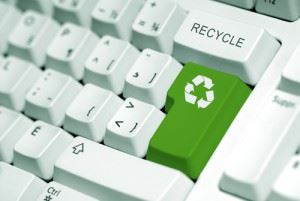
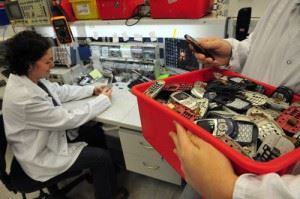 to legally dispose of an electronic device you should consider whether another person might benefit from using it. If there is any chance that an impoverished person, student or organization can obtain any utility whatsoever out of the electronic device, donate it or sell it. Finding a new owner for the device will improve another person’s life while simultaneously reducing the burden placed on electronic recycling/re-use hubs. Even if the device is malfunctioning, there still might be a way to remedy the problem.
to legally dispose of an electronic device you should consider whether another person might benefit from using it. If there is any chance that an impoverished person, student or organization can obtain any utility whatsoever out of the electronic device, donate it or sell it. Finding a new owner for the device will improve another person’s life while simultaneously reducing the burden placed on electronic recycling/re-use hubs. Even if the device is malfunctioning, there still might be a way to remedy the problem.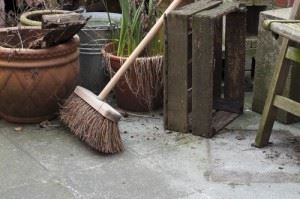 Sure, you’d like to get rid of some of this stuff and cut down on the amount of clutter in your living room and home office. Certain jobs, though, can feel like they’d take a herculean effort even to start and it tires us out just to think about the arduous work ahead.
Sure, you’d like to get rid of some of this stuff and cut down on the amount of clutter in your living room and home office. Certain jobs, though, can feel like they’d take a herculean effort even to start and it tires us out just to think about the arduous work ahead.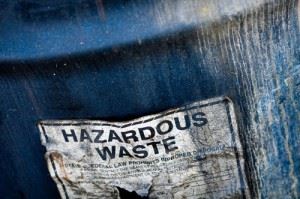 Agency
Agency